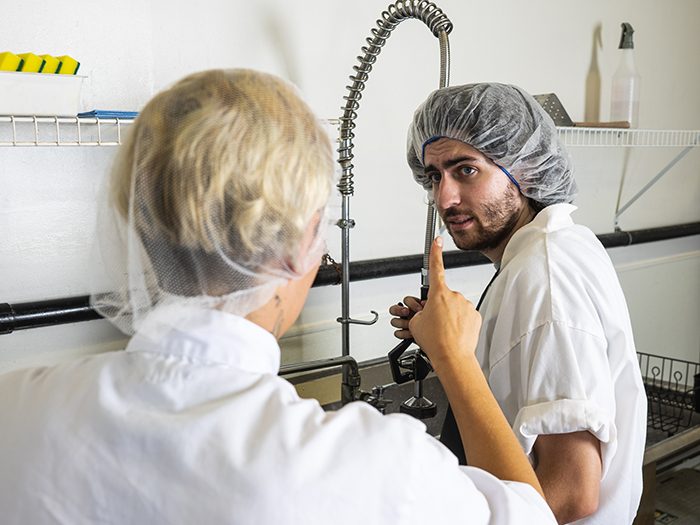Kitchen Nightmares: The Restaurant World’s Hidden Mental Health Risks

Stereotypes about toxic kitchen environments are so common in American culture that many people don’t bother to question the potential mental health concerns of a chef who flies into a rage in the kitchen or of an alcoholic bartender.
After all, symptoms of mental health issues, like sudden, unexpected anger and substance abuse, are often played for comedy in popular culture. (Think: The chef from The Little Mermaid or recovering-alcoholic Sam Malone on Cheers.)
The reality of workplace mental illness in the restaurant industry is far from funny, however.
A recent article from The Outline dives into the mental health crisis plaguing America’s food and beverage industry and looks at what’s being done on the ground to address employees’ struggles with mental illnesses.
The Numbers Aren’t Tasty
- A two-year study by the nonprofit Mental Health America found that the food and beverage industry was one of the three worst careers for employees’ mental health.
- Substance abuse problems also plague the industry. According to a 2015 study of 19 different industries by the Substance Abuse and Mental Health Service Administration, it found that the restaurant industry ranks number one in instances of illicit drug use and number three for instances of heavy alcohol consumption.
- Women often get hit the hardest by these problems as they make up 56% of the estimated 15 million people working in the restaurant industry.
- Mental health and substance abuse problems are having a lethal effect on the industry. Last year, the Sacramento restaurant community lost 12 people due to complications, such as substance abuse and suicide, that can stem from mental health issues.
- A lack of affordable health insurance is one of the major reasons why restaurant workers leave illnesses like anxiety and depression untreated. An estimated 5 million people working in the industry are uninsured. Another 10 million rely on the Affordable Care Act or Medicaid for their insurance.
Eyes Are Opening
Fortunately, restaurants are beginning to address the problem.
In 2018, Patrick Mulvaney, owner and chef at Mulvaney’s B&L in Sacramento, partnered with Kaiser Permanente, the James Beard Foundation and several other organizations to create the peer-to-peer counseling program “I Got Your Back,” which will be piloted in 22 Sacramento restaurants this year.
Mulvaney has already seen the program’s success in his own restaurant.
“By modeling the right behavior for my managers, they will model it for the staff, which improves, not only morale up and down the line, but also responsiveness, which improves performance and retention,” he told The Outline.
Other organizations, including Fair Kitchens and Culinary Hospitality Outreach and Wellness, have tried to address the issue by providing employers with training kits that guide them through discussing issues like depression and anxiety with their employees and through connecting workers with 12-step programs to help them stay clean.
Despite these efforts, however, some people still feel food services aren’t doing enough to address the factors within the industry, such as low pay and sexual harassment, that directly impact many of the employee’s mental health.
Marie Billiel, a service trainer at a restaurant in Boston, worries that it will take more than awareness about persistent mental health issues facing restaurant workers to tone down the industry’s sexual harassment problems.
“So many days I would feel a sense of dread going into work, wondering how bad it was going to be that night, or if I was going to be put in a situation where I had to make a choice whether or not I was going to suffer through whatever was happening or risk losing tips,” she told The Outline.
“It wasn’t great for my well being. I felt a level of anxiety, depression, dread and foreboding every day.”
Learn More
Mental health issues are gaining increased attention all over the workers’ compensation landscape right now.
From advice on how employers can help their workers build mental resilience to discussions about how to end the mental health stigma that plagues the workplace, companies have more resources than ever to help create a culture of mental well being. There’s even some evidence that mental health services after traumatic events can reduce claim costs.
Mental illnesses aren’t the only risks facing the restaurant industry either: Many worry about health concerns that could arise as patrons continue to call for locally sourced, farm-to-table menu options and high turnover rates in the industry continue to pose safety risks for workers. &










